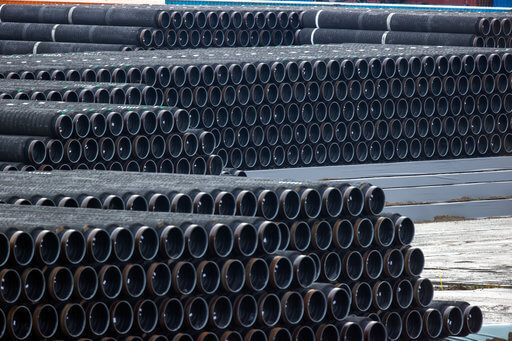In an address to the Lord Mayor’s Banquet at the Guildhall yesterday evening, the prime minister expressed grave concerns about the sovereignty of Ukraine and implied that Europe had a choice between ensuring this and relying on Russian energy.
His remarks come amid rising tensions between the West and the Kremlin.
The United States government claimed on Friday that Russia may be planning an invasion of Ukraine in a potential repeat of its 2014 annexation of Crimea.
Tens of thousands of Russian troops have amassed on Ukraine’s eastern border.


This comes after Polish prime minister Mteusz Morawiecki and various western leaders have accused Belarus’s authoritarian leader, backed by Russian premier Vladimir Putin, of sending migrants to the Polish border due to fury over EU sanctions on the Lukashenko regime.
However, Mr Johnson made an effort to emphasise the historic ties between Britain and Russia, saying: “So when we say that we support the sovereignty and integrity of Ukraine, that is not because we want to be adversarial to Russia, or that we want in some way strategically to encircle or undermine that great country.
“And never let it be forgotten, in this season of remembrance, that it was Russian blood that enabled us to defeat Nazism.”
However he explained that: “It is because we have a commitment to democracy and freedom that is shared now across the vast mass of the European continent. And when our Polish friends asked for our help to deal with a contrived crisis on their border with Belarus, we were quick to respond.”
He then went on to allude to the coming difficulties of Europe’s increasing dependence on Russian gas, stating: “And we hope, I hope, that others may recognise, other European countries may recognise, that a choice is shortly coming, between mainlining ever more Russian hydrocarbons in giant new pipelines, and sticking up for Ukraine and championing the cause of peace and stability – let me put it that way.”
Johnson’s comments come after foreign secretary Liz Truss urged “friends across Europe” to collectively oppose the Nord Stream 2 pipeline, arguing in an opinion piece for The Telegraph that: “It risks undermining European security by allowing Russia to tighten its grip on those nations who rely on its gas,” she wrote.
The Nord Stream 2 pipeline will move gas over 1,200 kilometres from just outside of St. Petersburg, to Germany’s Baltic coast.
Its combined annual capacity of around 110 billion cubic meters of gas is set to increase the reliance of Germany and its neighbours on Russian gas.
Ukraine’s President Volodymyr Zelensky opposes the pipeline, arguing that it threatens the country’s security.
Germany has increased its use of natural gas since its reversal of plans to extend its nuclear capacity in the wake of Japan’s Fukushima nuclear disaster in 2011.









